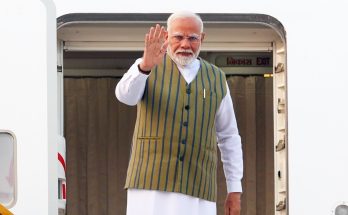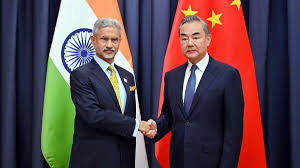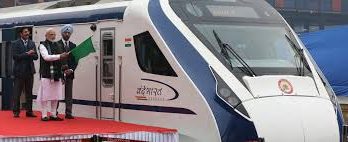Is India’s growing relationship with the US, as epitomised by Prime Minister Narendra Modi’s second visit to the US in a year, directed against China? Beijing thinks so, but Washington is wary of such a spin. With US President Barack Obama set to meet both Chinese President Xi Jinping and PM Modi this month, US ambassador to India Richard Verma has rejected such zero sum games and underlined the potential of the rise of India for the region and the world.
“I know the elephant in the room is whether these transformations in our relationship with India are somehow directed at China”, said the US envoy, adding that the potential of their ties “is so much larger than developments in India’s eastern neighbourhood”. In a speech at the East-West Center, Hawaii, on “An Alliance for Global Prosperity”, he stressed that the “developments of the past year show that India is determined to emerge from its slumber as the second sleeping giant of Asia and reclaim its historical position as one of the great world powers”.
Through dialogues such as the US-India East Asia consultations and US-India-Japan trilateral, the main aim of the two countries is to work together by promoting a democratic and rules-based vision for political and economic security in Asia, stressed Mr Verma. With tensions escalating in the South China Sea between China and its neighbours, India and US had come out with a joint strategic vision statement on Asia- Pacific and Indian Ocean region during President Barack Obama’s visit to India in January. This had fueled vitriolic commentaries in Chinese strategic circles that India and the US are working towards an anti-China alliance by collaborating with countries such as Japan and Australia.
Elaborating on the security cooperation between India and the US, the envoy said: “Both are also partnering in security cooperation with their militaries working together to jointly train UN peacekeepers on the ground in several African countries.” He also spoke about how it would be a poor strategic calculation to view India as an eager rival to China.
The sealing of the transformational nuclear deal in the summer of 20015 transformed relations between the world’s once estranged democracies, and upgraded it to full-spectrum strategic partnership. Echoing words of President Obama, who has spoken eloquently about “the defining partnership of the 21st century,” the US envoy termed the partnership “a 21st century alliance, based in Asia, working towards the goal of global prosperity.” “This partnership will protect the commons, empower the youth of our countries and the world, help maintain global peace, and further prosperity and development”, he added.
(Sridhar Kumaraswamy contributed inputs for this article)
Author Profile

- Manish Chand is Founder-CEO and Editor-in-Chief of India Writes Network (www.indiawrites.org) and India and World, a pioneering magazine focused on international affairs. He is CEO/Director of TGII Media Private Limited, an India-based media, publishing, research and consultancy company.
Latest entries
 DiplomacyOctober 20, 2024Ahead of Modi’s visit, Putin invokes Bollywood bonding, lauds India’s Ukraine diplomacy
DiplomacyOctober 20, 2024Ahead of Modi’s visit, Putin invokes Bollywood bonding, lauds India’s Ukraine diplomacy India and the WorldOctober 20, 2024Global South in focus, PM Modi heads for BRICS Summit
India and the WorldOctober 20, 2024Global South in focus, PM Modi heads for BRICS Summit In ConversationOctober 18, 2024India a global leader, partner in creative economy: Uzbekistan’s culture impresario
In ConversationOctober 18, 2024India a global leader, partner in creative economy: Uzbekistan’s culture impresario India and the WorldOctober 12, 2024India-ASEAN summit: Modi unveils 10-point plan, says 21st Century Belongs to Asia
India and the WorldOctober 12, 2024India-ASEAN summit: Modi unveils 10-point plan, says 21st Century Belongs to Asia








